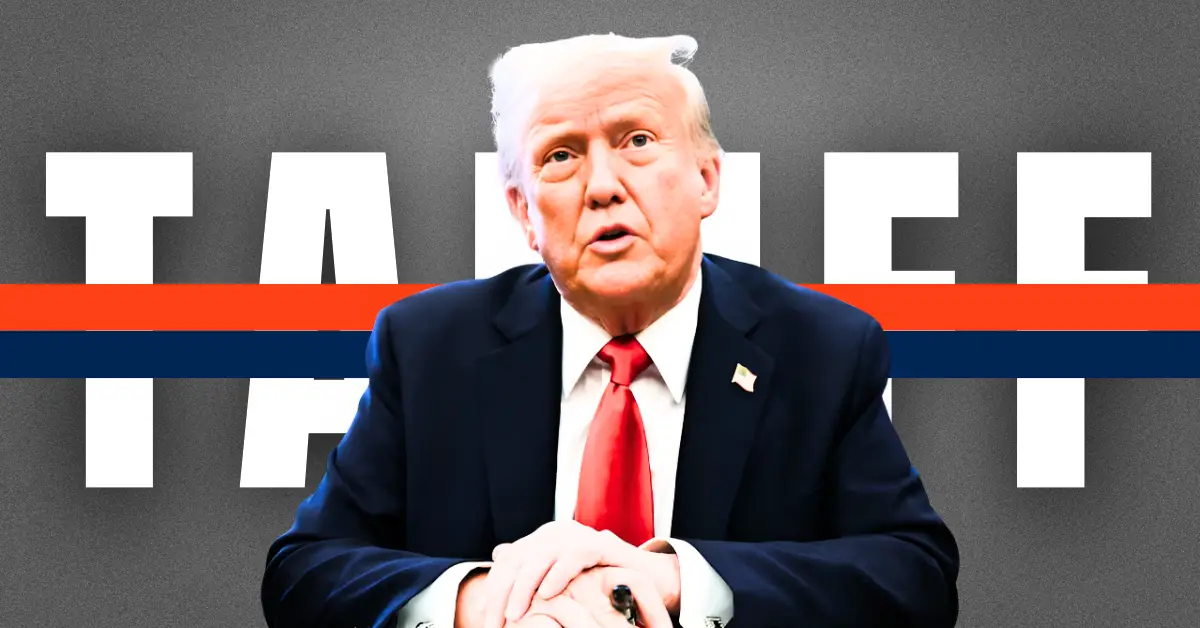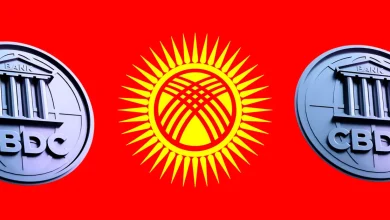
Bitcoin has gained 2.46% in April, showing resilience as global trade tensions rise due to Trump’s new tariff policy.
The U.S. Dollar Index has dropped 4.39%, and traditional markets like the S&P 500 and Nasdaq are down over 5%.
Bitcoin’s performance diverges from traditional assets, reinforcing its role as a potential inflation hedge.
As global trade tensions rise due to aggressive tariff policies, investors are starting to rethink where they place their trust. Traditional financial assets, once considered stable, are showing signs of strain. In the middle of this uncertainty, Bitcoin – once dismissed as a risky digital experiment – is beginning to look like something more.
Could this decentralized asset really serve as a hedge against inflation, currency devaluation, and economic instability? And in a world rattled by trade wars, is Bitcoin quietly becoming the new safe haven?
Let’s break it down.
Trump’s Tariff Push Shakes Global Markets
April has been a turbulent month for the global economy, mainly due to U.S. President Donald Trump’s introduction of an aggressive tariff policy. The new rules target 15 countries that the U.S. sees as having unfair trade advantages. This move has disrupted markets around the world, affecting nearly all major asset classes – including crypto.
To calm things down, the Trump administration announced a 90-day delay/pause for countries that haven’t hit back with their own tariffs. Still, uncertainty remains high, and many investors are looking for safer places to put their money.
Since April 1, Bitcoin has risen by 2.46%, holding up better than many traditional assets. Some investors now see BTC as a hedge against the instability caused by tariffs and trade wars.
Bitcoin’s fixed supply and decentralized nature stand in contrast to fiat currencies, which are heavily influenced by central banks and politics. Research shows Bitcoin has a low correlation – less than 40% – with traditional assets, making it useful for diversifying a portfolio.
How Tariffs Are Weakening the US Dollar?
At the start of April, the U.S. Dollar Index was at 104.196. Since then, it’s dropped by more than 4.39%. Experts say tariffs may strengthen the dollar at first, but over time they can hurt exports and damage U.S. businesses.
Bitcoin vs Traditional Financial Assets: A Comparison
The U.S. stock market has taken a hit this month. The S&P 500 started April at $5,598.77 and has since fallen 5.77%. The Nasdaq 100 dropped 4.8% from its April 1 level of $19,179.58.
In contrast, Bitcoin has remained relatively stable. It rose 2.46% over the same period, and in just the past week, it’s up 3.1%. This shows that despite broader market volatility, BTC has managed to stay resilient.
Even though Bitcoin had a rough start to 2025, many investors remain confident in its long-term value. In 2023, Bitcoin gained 155.4%. In 2024, it grew by 121.1%. Though the first quarter of 2025 saw an 11.7% drop, the second quarter is already showing a 2.72% gain.
This solid performance over time is one reason many still see Bitcoin as a strong long-term hedge.
- Also Read :
- Crypto News Today : Bitcoin Sell Off, Silver Price Today, Bitcoin News, Coinbase on Crypto Market
- ,
Can Bitcoin Replace Gold?
Not everyone is bullish on Bitcoin. Peter Schiff, a well-known gold supporter, recently urged investors to stay away from BTC and instead put their money into U.S. gold mining stocks. He even predicted that Bitcoin could fall as low as $10,000.
Bitcoin is often called “digital gold,” but it hasn’t replaced real gold as the go-to safe haven. Since April 1, gold’s spot price has climbed 6.8%, beating Bitcoin’s performance during the same period.
This shows that while more investors are turning to Bitcoin, gold still dominates during times of crisis.
As trade wars and economic worries grow, Bitcoin is moving closer to being seen as a real alternative to traditional safe-haven assets. While it hasn’t overtaken gold just yet, its independence, limited supply, and low correlation with traditional markets make it an increasingly attractive option.
Never Miss a Beat in the Crypto World!
Stay ahead with breaking news, expert analysis, and real-time updates on the latest trends in Bitcoin, altcoins, DeFi, NFTs, and more.
FAQs
Tariffs initially strengthen the USD, but later harm exports and businesses. Bitcoin, unaffected by tariffs, may perform better as the USD weakens.
Bitcoin’s low correlation with traditional assets suggests its long-term appeal as a hedge remains strong, even amid trade wars and tariffs.







